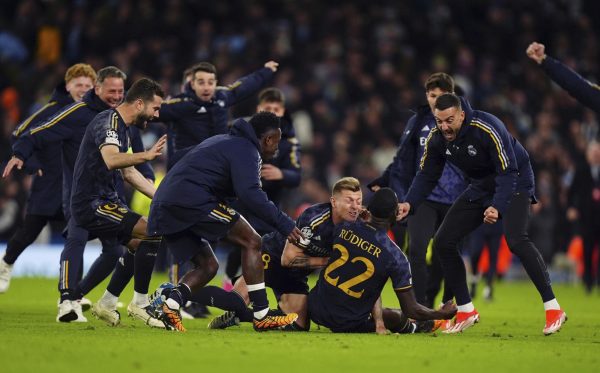European Football’s New Balance of Power
When most college-aged kids think of the great European football clubs from the past, they recall the dominance of the two Spanish giants: Real Madrid and Barcelona. In the past 20 years, these two teams have accounted for nine of the past 20 Champions League titles. In the past 10 years, they have accounted for six out of 10. If you argue Europa League should also be considered, Spanish teams have accounted for six titles out of the past 10 won. There’s a consensus among football fans that recent times have been dominated by Spanish teams. That’s no surprise given Lionel Messi and Christiano Ronaldo, the two best players of the outgoing generation, spent their prime years at these two legendary clubs. The Spanish National Team also had their “golden generation” during these years; their domination at the World Cup is evidence of this. However, it’s obvious to any football fan that the era of Spanish dominance is ending. Who’s in line to take La Liga’s place in Europe? The mantle of European dominance will be taken over by English and German teams.
England arguably could be considered the second most successful league in Europe in the past 20 years. Alex Ferguson’s Man United dominated for all his reign, but the late years, from 2003-2013 roughly, are years members of my generation remember best. Chelsea fielded incredibly successful teams, and so did Liverpool. Arsene Wenger managed very talented sides at Arsenal as well. Many consider those years (around 1998-2013) as the golden age of the Premier League, when world-class players like Ronaldo, Lampard, Henry, Gerrard and others terrified defenses. However, between Chelsea’s Champions League victory in 2012 and Liverpool’s in 2019, Real Madrid and Barcelona won five Champions League titles between the two of them. Now is the time that England steps up in the European theatre.
Liverpool’s reemergence over the past two years could be considered the starting point of this shift; even Tottenham was one win away from winning the UCL in 2019. The typically Roman Abramovich-esque spending explosion this summer has alerted football fans to the dangers of Chelsea, who have been quiet since their title win in 2015. Manchester United, although quiet in the market this summer, also deserve a mention. Man City’s ambitions are well-known, although they have been disappointing in Europe under Pep Guardiola. Even the Wolves and Everton have been smartly building, so the Premier League should be (and already is, judging by the first three matchweeks) a show this year. If English teams can successfully manage the talent in their squads, several teams should be competing for the UCL each year. Only time will tell if that actually happens.
Ligue 1 deserves a mention because of the dominance of PSG. After disappointing UCL campaigns in recent years, PSG nearly pulled it off in the final against Bayern in August. Lyon’s surprising, yet impressive push to the semifinal may be a sign of things to come for France’s big boys, but most likely won’t continue. Their run this past year was reminiscent of Monaco’s 16-17 campaign; however, all the young stars of that team were snatched up by top European clubs, and we can anticipate that happening again if Lyon achieves success again this year. The fact is, PSG is the only French club that can attract and keep top talent. It is the same situation as Juventus in Italy, which is why I cannot imagine either Ligue 1 or Serie A cementing their dominance in Europe in the coming years.
The Bundesliga is an interesting league to consider. They boast the UCL champions, Bayern and several other top clubs. Much like Serie A, they have a dominant top club who have won eight domestic titles in a row. However, there’s an interesting mix of teams behind Bayern, including Borussia Dortmund. Their retention of Jadon Sancho (as of press time), a top young European talent, signals their intentions. Dortmund has always been in the shadow of Bayern, but are a top European club that makes the Bundesliga very strong. Combine that with the incredible crop of young upcoming German players, and the Bundesliga seems like a strong contender to shift the balance of European dominance.
However, because of the sheer ambition of English teams across the board, the Premier League seems destined to dominate on the European stage. English teams have the most money, the best managers and attract the best talent. The desired destination of the world’s best players is England, now more than ever. And that trend will only continue. Time will tell if they achieve success in Europe, but it’s only a matter of time that England is dominating the Champions League.








